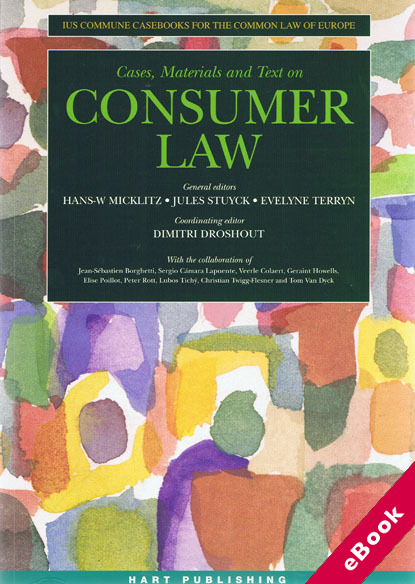
The device(s) you use to access the eBook content must be authorized with an Adobe ID before you download the product otherwise it will fail to register correctly.
For further information see https://www.wildy.com/ebook-formats
Once the order is confirmed an automated e-mail will be sent to you to allow you to download the eBook.
All eBooks are supplied firm sale and cannot be returned. If you believe there is a fault with your eBook then contact us on ebooks@wildy.com and we will help in resolving the issue. This does not affect your statutory rights.
The objective of this casebook, like others in the Ius Commune Series, is to help uncover common roots, notwithstanding differences in approach, of the European legal systems, with a view to strengthening the common legal heritage of Europe.
The casebook covers the big legal families in the EU and contains judgments from the supreme courts and other courts of the Member States. In view of the importance of EC legislation (eg harmonisation directives and regulations) in this field, the consumer law casebook contains much material derived from Community law, such as extracts from directives (eg on unfair contract terms, distance selling, doorstep selling, product liability, package holiday tours etc) and judgments of the ECJ and national court decisions.
Furthermore, attention is paid to the way in which, when interpreting EC directives in the consumer field, the ECJ refers to concepts common to the legal systems of the Member States and how the courts of the Member States incorporate the concepts found in the directives (as interpreted by the ECJ) in their legal systems.
The casebook also compares harmonised and pre-harmonised law, especially in the case law of the Member States. The casebook concentrates on private law in the field of consumer protection but also addresses topics, in particular in the field of enforcement, that are primarily a matter of public law.